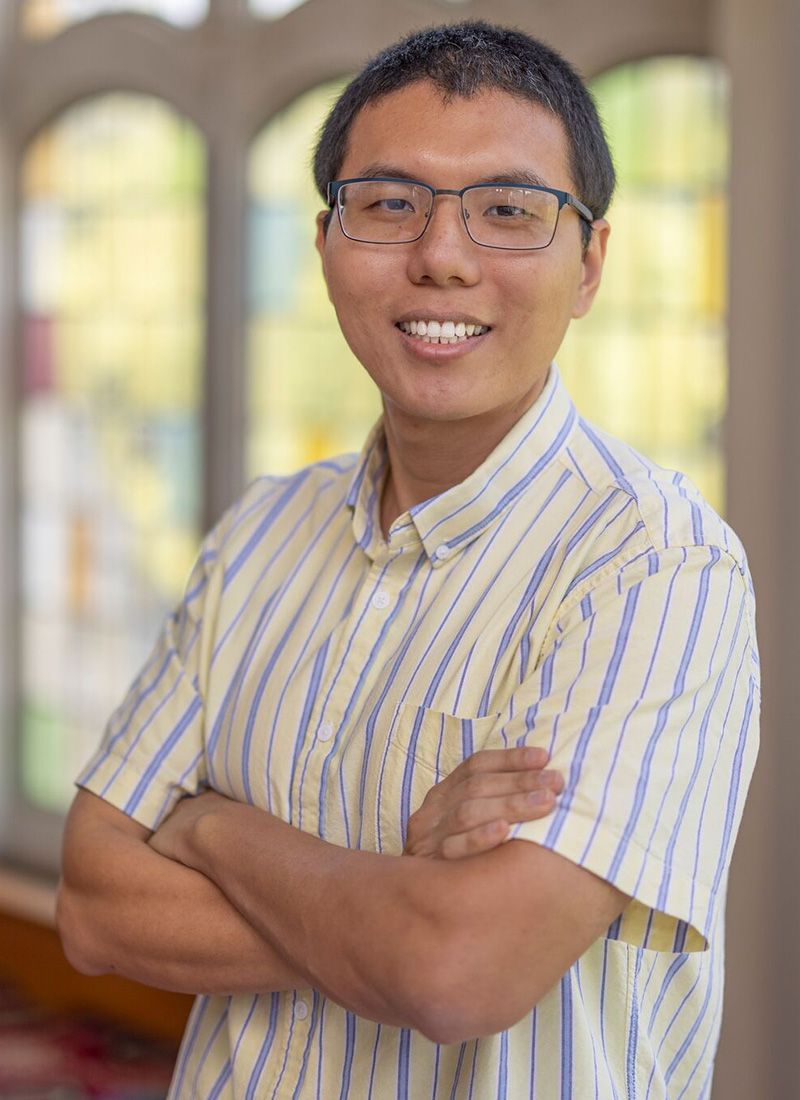Histoplasma capsulatum is a primary fungal pathogen that causes respiratory tract infections (i.e., histoplasmosis) in both immune-competent and immune-compromised individuals. Among immune-compromised individuals (e.g., AIDS patients), infections can progress into disseminated histoplasmosis, resulting in life-threatening situations. The mortality rate among HIV patients infected by Histoplasma is 30% in Latin America. Spores produced by Histoplasma reside in the soil. When the spore-containing soil is disturbed, the aerosolized spores can be inhaled and reach the lower respiratory tract. In the lung environment, Histoplasma spores germinate into pathogenic yeasts under the elevated temperature (i.e., 37°C).
Unlike the opportunistic fungal pathogens such as Candida and Aspergillus, Histoplasma yeasts cannot be readily eliminated by macrophages which normally control microbial infections. Instead, they survive and proliferate within the phagosomal compartment of macrophages which is a nutrient-depleted environment. Dr. Shen seeks to understand the molecular mechanisms employed by Histoplasma yeasts to acquire sufficient nutrients (e.g., carbon, nitrogen, and sulfur) to proliferate within macrophages.
Histoplasma must adapt to the mammalian host environment to successfully establish infections. The habitat of Histoplasma in the soil is vastly different from the host environment during infection. Differences such as temperature, nutrient availability, and level of carbon dioxide (CO2) can significantly impact the physiology and potentially the virulence of Histoplasma. Dr. Shen’s research also focuses on understanding how Histoplasma senses and responds to elevated CO2 within the mammalian host.
Selected Publications
Peter J Brechting, Chandan K Shah, Liva Rakotondraibe, Qian Shen, and Chad A Rappleye. Histoplasma capsulatum requires peroxisomes for multiple virulence functions including siderophore biosynthesis (2023). mBio, e03284-22.
Qian Shen, Alondra Gonzalez-Mireles, Stephanie C. Ray, and Chad A. Rappleye. Histoplasma capsulatum relies on tryptophan biosynthesis to proliferate within the macrophage phagosome (2023). Infection and Immunity, e00059-23.
Roberto de la Salud Bea, Elaine Frawley, Qian Shen, Sydney Moyo, Jeremy M. Thelven, and Lily North. Synthesized peptide analogs from Eumenes pomiformis (Hymenoptera: Eumenidae) venom reveals their antibiotic and pesticide activity potential (2023). Toxicon, 224, 107032.
Roberto de la Salud Bea, Lily J. North, Sakura Horiuchi, Elaine R. Frawley, and Qian Shen. Antimicrobial Activity and Toxicity of Analogs of Wasp Venom EMP Peptides. Potential Influence of Oxidized Methionine (2021). Antibiotics 10, 1208.
Qian Shen and Chad A. Rappleye. Living Within the Macrophage: Dimorphic Fungal Pathogen Intracellular Metabolism (2020). Frontiers in Cellular and Infection Microbiology 10, 592259.
Qian Shen, Stephanie C. Ray, Heather M. Evans, George S. Deepe, Jr., and Chad A. Rappleye. Metabolism of gluconeogenic substrates by an intracellular fungal pathogen circumvents nutritional limitations within macrophages (2020) mBio 11(2), e02712-19.
Qian Shen, Matthew J. Beucler, Stephanie C. Ray, and Chad A. Rappleye. Macrophage activation by IFN-γ triggers restriction of phagosomal copper from intracellular pathogens (2018) PLoS Pathogens 14(11): e1007444 (Featured on Science Trends).
Qian Shen and Chad A. Rappleye. Differentiation of the fungus Histoplasma capsulatum into a pathogen of phagocytes (2017) Current Opinion in Microbiology 40, 1-7.
Andrew L. Garfoot, Qian Shen, Marcel Wüthrich, Bruce S. Klein, and Chad A. Rappleye. The Eng1 β-glucanase enhances Histoplasma virulence by reducing β-glucan exposure (2016) mBio 7(2), e01388-15.
Education
M.S., Mississippi State University
